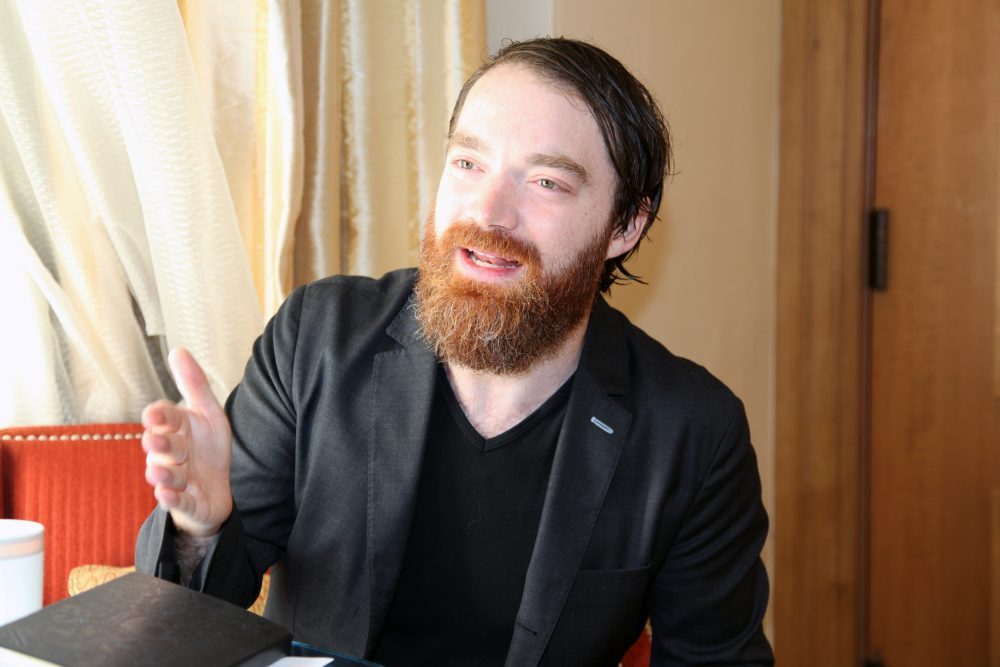
Photo by Aaron Salcido.
Seth Porges is a technology writer and television personality. Before moderating a panel asking “How Is the World Innovating to Reach Broader Audiences?” at a Zócalo/Irvine Foundation conference in downtown Los Angeles entitled “What Can the World Teach California About Arts Engagement?” he chatted in the green room about his Volvo, being an autodidact, and the grandfather paradox of time travel.
What’s on your living room walls?
I have a couple drawings from one artist who was a friend, who passed away, who was a schizophrenic musician and street artist. He lived in Chicago. He did art of these incredibly intricate cityscapes with basically colored pencil. He returned to the same subject matter again and again and again and again—the Chicago skyline drawn from memory. And if you start looking at a number of his pieces, it’s really amazing to see what might be slightly different about two drawings of the exact same thing.
Wow, anything else?
Most of my interaction with the art field is in the context of technology …
What interests you about that?
Let’s take photography as an example: It wasn’t as if one day somebody woke up and the camera was invented. It was a series of incremental advances over literally thousands of years that required stitching together various pieces of technology. And once early photography was invented, a lot of it was still very mysterious. Somehow these random chemical compounds caused all these things to occur, but nobody really understood why. And then you look at the mad men who were risking their lives by exposure to these chemicals. And it was so time-consuming, clumsy, expensive, and impractical.
What are you reading for pleasure?
I’m about halfway through that book that was just turned into a TV show, American Gods. It’s good. I recently finished—finally—Infinite Jest. I just read a biography of Edward Muybridge, which is why I’m regurgitating the early history of photography!
You live in New York. Do you have a car?
I split my time between New York and upstate New York, in Beacon. So I have a car just because, upstate, you kind of need one. It’s an old Volvo station wagon.
Was there a teacher or professor who really influenced you?
I think a lot of people probably would have an instant response, but I don’t. I’m a very self-educated individual to a large degree. I think a lot of my personal interests and the direction I’ve taken have come from independent study and digging and exploring. What comes to mind isn’t a teacher or professor, but my parents. And it’s less them sitting down and teaching me, and more kind of learning how to learn from them. They’re neuroscientists, as is my brother, and they’re innately curious individuals who have a very skeptical and scholarly approach to the world. And I think I kind of leeched off of them, that mentality and technique. They encouraged me to ask the right questions.
If you could time travel to any period, past or future, what would it be?
It depends what rules you use. Can I abide by the grandfather paradox? Can I actually change history? Is there any danger of causing irreparable damage to the space-time continuum?
No, it’s not a Ray Bradbury short story—this is pure sightseeing, and you don’t have to stay there.
Got it. I would say, as far into the future as possible—with the caveat that I probably won’t be able to breathe the air. So, as far into the future as possible in which there’s breathable air and land to stand on.
Why that far ahead?
Well, we know to some degree where things were. Nobody knows where it’s going. We’re all in a movie that we don’t know how it’s going to end, and it’d be nice to turn to that last page.



